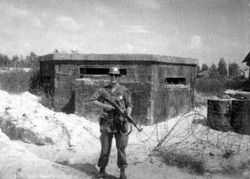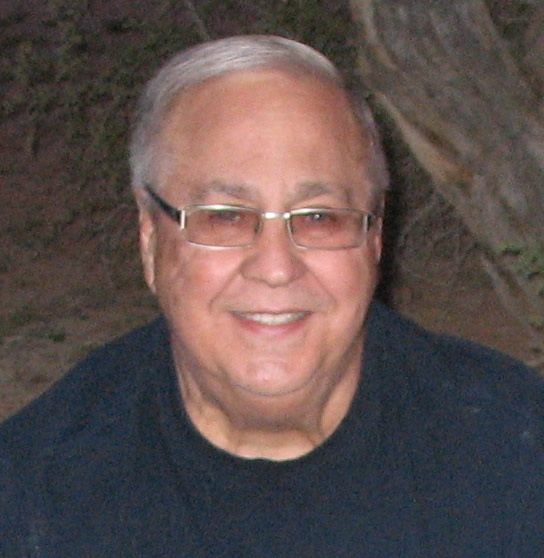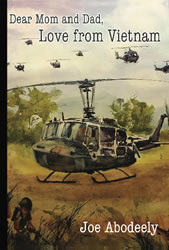
By Joseph E. Abodeely, Colonel, US Army (Ret)
All wars are the extensions of the local or geo-politics of the times. Baron von Clausewitz, a Prussian staff officer in the Crimean War wrote in his treatise “On War” that war is politics by another means. The Vietnam War is barely discussed in schools, and often what is taught is biased in favor of the antiwar movement or is a negatively slanted view of the US involvement in Vietnam. The side that says the war was necessary, legitimate, just, etc. has been drowned out. It needs to be heard. Why? Most living veterans are Vietnam veterans; therefore, more positive information should be presented now about their honorable service and the various complex issues relating to that war while they are still alive.
A tactic some educators employ to further suppress many of the untold truths about the Vietnam War is expressing a desire to “present both sides” of the issue. This often involves presenting the same old cliché untruths on the “con” side while presenting weak or shallow points for the “pro” side. The Vietnam War is often casually treated as an “event in post WWII era” rather than as a major event which occupied 1/10th of the 20th century. The justification and the conduct of the war are often presented in a way to malign the service of the veterans of the Vietnam War—this has never been done regarding the service of any other U.S. veterans in recent memory. In fact the gushing support of recent veterans is almost extravagant. Is this a result of a national guilt for America’s treatment of its Vietnam veterans?
The United States made a solemn commitment by the SEATO Treaty in 1955 (ratified by President Eisenhower with almost unanimous advice and consent of the Senate) to come to the aid of any of the "Protocol States" of that treaty--Republic of Vietnam (South Vietnam), Laos, and Cambodia, requesting assistance in defense of their freedom from Communist aggression. Quibbling over the merits of the Gulf of Tonkin Resolution or the incident, itself, does not negate the fact that the Republic of Vietnam (South Vietnam) was a legal entity which the US was obligated to defend against Communist aggression pursuant to SEATO--Southeast Asia Treaty Organization.
After the Viet Minh defeated the French, the 1954 Geneva Accords delineated North and South Vietnam, and elections were to be held if the Viet Minh (fighters from the North) returned to the North and allowed free elections in the Republic of Vietnam (South Vietnam). The Viet Minh did not comply. There was still intimidation and terrorism by the Viet Minh on the populace in the South. There could not be free and fair elections. Any assertion that Ho Chi Minh would have won an election by 80% of a vote is as an astute observation as noting that Saddam Hussein and Hafez Al Assad won elections by almost 100%. The Muslim Brotherhood in Egypt was “democratically elected” and the Chancellor of Germany in the 1930s who later became one of history’s most despised leaders was “democratically” elected. They all had had “democratic” elections, but consider the circumstances. A so-called “democratic” election in Vietnam with the Viet Minh still terrorizing the South Vietnamese people would have been a sham.
John F. Kennedy pledged to the world:
"Let every nation know, whether it wishes us well or ill, that we shall pay any price, bear any burden, meet any hardship, support any friend, oppose any foe to assure the survival and the success of liberty."
In August 1964, Congress enacted the Southeast Asian Resolution by a combined vote of 504-2. The US mission was to assure the survival and the success of liberty for the South Vietnamese people, and the U.S. Vietnam veteran with the help of its allies including the armed forces of the Republic of Vietnam did just that until the North Vietnamese were brought to the peace table in January 1973.
Communist defectors used to laugh and express shock at how successful their campaign had been to portray the "National Liberation Front" to the west as something other than a classic Leninist "front" organization. Hanoi actually published an English-language translation of the Proceedings of the 1960 Third Party Congress, including the resolution it approved calling for "our people" in South Vietnam to set up a front under Party leadership three months before the NLF was allegedly formed by non-Communist resistance leaders in Ben Tre. Scholars, anti-war protesters, and the media who were duped by this deception should be ashamed of themselves. They maligned an entire generation of American patriotic veterans.
The Tet Offensive of 1968 was a major Communist series of attacks on major populated areas in South Vietnam intending to inspire a popular uprising of the South Vietnamese people against government and forces of the Republic of Vietnam. The offensive was both a military and political failure for the Viet Cong and North Vietnamese Army who did not win any major battles and who failed to achieve the popular uprising they wanted.
After the battle for Hue; however, Walter Cronkite, the most trusted man in America contributed to misrepresentations and untruths about the US actions in Vietnam when he opined:
“To say that we are mired in stalemate seems the only realistic, yet unsatisfactory, conclusion. On the off chance that military and political analysts are right, in the next few months we must test the enemy's intentions, in case this is indeed his last big gasp before negotiations. But it is increasingly clear to this reporter that the only rational way out then will be to negotiate, not as victors, but as an honorable people who lived up to their pledge to defend democracy, and did the best they could.”
Even President Johnson recognized that when he lost Cronkite, he lost the American people. This was a dramatic event and a powerful statement which helped perpetuate the misrepresentation that the US lost the battles during the Tet Offensive of 1968. There was little mention about the terrorism and atrocities the North Vietnamese Army (NVA) and the Viet Cong (VC) committed on the people of Hue and reported only after mass graves containing thousands of bodies were discovered. The minimization of the Viet Cong’s and North Vietnamese Army’s atrocities was part of a disinformation campaign about the war which continues today.
Regarding “winning” and “losing” the Vietnam War—the US military forces won the war by any measure one wants to use. It won all the major actions on the battle field. In December 1972, the US bombed the hell out of North Vietnam and brought the North Vietnamese to the peace table in January 1973. The US through its military won the war then—it ended the war; it got its POWs back; it got rights for the South Vietnamese; and it promised to replace any logistical supplies the South needed if the North attacked again. U.S. troops came home in 1973. In June 1974, President Nixon got caught in a third rate eavesdropping case and resigned from office. In November 1974, it was a Democratic landslide in Congress. Many of these Congressmen were part of the “anti-war movement”. And then Congress forfeited what the U.S. military had achieved.
The Congressional action that truly sounded the death knell for South Vietnam and "snatched defeat from the jaws of victory" was not simply cutting aid, but passing a law (the FY 1973 Dept of State Auth. Act, Pub. L. 93-126, 87 Stat. 451) that provided:
Notwithstanding any other provision of law, on or after August 15, 1973, no funds heretofore or hereafter appropriated may be obligated or expended to finance the involvement of United States military forces in hostilities in or over or from off the shores of North Vietnam, Laos, or Cambodia, unless specifically authorized hereafter by Congress.
This guaranteed Hanoi and its allies that the United States was not going to fulfill its pledge to defend those victims from aggression, and Pham Van Dong (Hanoi's Premier) announced that the Americans would not come back "even if we offered them candy." So Moscow and Beijing greatly increased their aid. Hanoi left only the 325th Division to defend the Hanoi area and sent the rest of its Army behind columns of Soviet-made tanks to conquer South Vietnam (and Laos and Cambodia, the other Protocol States we had repeatedly pledged to protect) in a conventional military invasion. North Vietnamese Army tanks rolled into Saigon on April 30, 1975.
The so-called “liberation” of the Protocol States (Republic of Vietnam, Cambodia, and Laos per SEATO) by the Communists was catastrophic. An estimated 100,000 South Vietnamese were executed, as many as 250,000 more died in "reeducation camps," and another 45-50,000 died in the "New Economic Zones”. The UN High Commissioner for Refugees estimated 420,000 "boat people" died at sea fleeing the Communist tyranny in search of freedom.
The Yale University Cambodian Genocide Project estimated 1.7 million Cambodians (more than 20% of the entire population) were killed by Pol Pot and his Khmer Rouge. A January 2004 article on the "killing fields" in NATIONAL GEOGRAPHIC TODAY noted that "bullets were too precious to use for executions. Axes, knives and bamboo sticks were far more common. As for children, their murderers simply battered them against trees.” So much for Communist “liberation”, and don’t forget the “boat people”.
Those who claim that the Vietnam War was a debacle for everyone involved is a gross misrepresentation, and criticism and maligning of those who honorably served their country fighting Communism and protecting the South Vietnamese people during the war is outrageous. Much has been made about 58,000 plus lives lost in the Vietnam War as though the whole effort was for naught. Vietnam veterans’ service should be honored for the following reasons:
· In WW II, two-thirds of those who served were drafted while only one-third volunteered to serve. In the Vietnam War, two-thirds volunteered while one-third were drafted.
· During WW II, the infantryman served about 40 days in actual combat in a year. In Vietnam, the infantryman served about 240 days in combat.
· The Vietnam veteran served in the armed forces in Vietnam or contiguous waters or airspace or Thailand, or Laos or Cambodia in direct support of operations in Vietnam to help the South Vietnamese people defend themselves from the invading North Vietnamese Army and to help prevent the spread of Communism throughout Southeast Asia.
· The Vietnam veteran served to protect South Vietnam until the end of the war in 1973, forcing North Vietnam to sign the peace treaty, to return US POWs, and to grant concessions to South Vietnam.
· The Vietnam veteran served to prevent the takeover of Southeast Asia and keep the Philippines, Indonesia, Malaysia, Singapore, and Thailand free of Communism.
· The Vietnam veteran service helped to develop weapons, tactics, transportation, medical evacuation procedures, and communications during the war which have proven beneficial to later military service members.
· It is reasonable to deduce that because of a national guilt for the maligning of Vietnam veterans, the American public over-compensated with “support our troops” when the U.S. invaded (“shock and awe”) and occupied the Iraqi people who did no harm to America.
As a result of misrepresentations and half-truths and an anti-Vietnam veteran agenda, Vietnam veterans returned home to an ungrateful nation; but they endured, and the vast majority of Vietnam veterans became productive, patriotic Americans whose nation is proud of their service. We need to talk more about the Vietnam War and the meritorious service of those who answered the call to serve.
Joseph E. Abodeely
Colonel, USA (Ret


 RSS Feed
RSS Feed